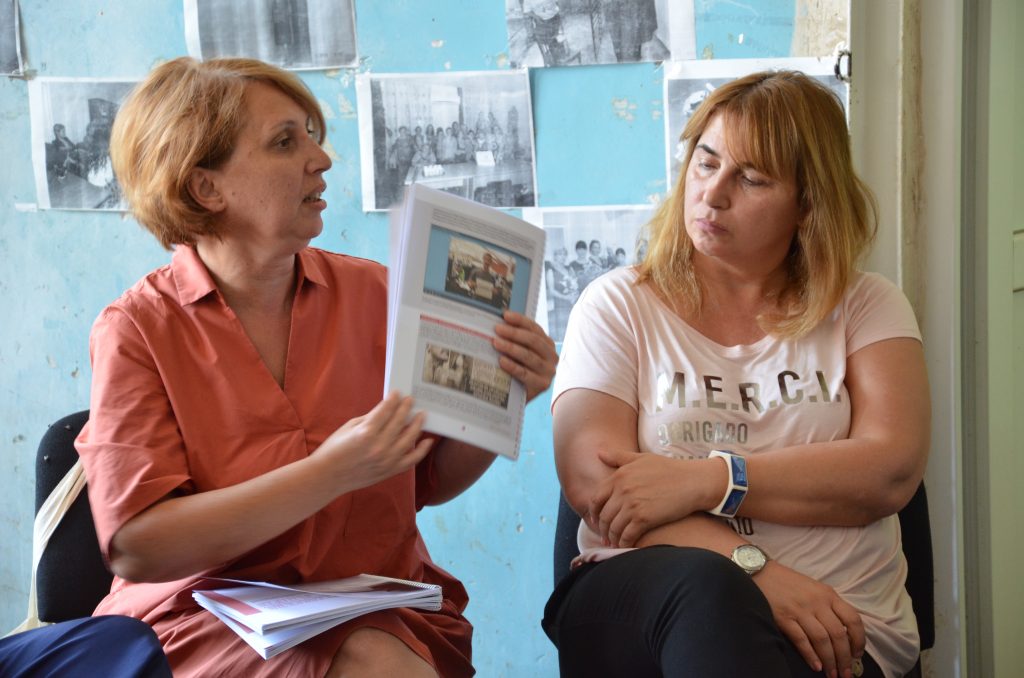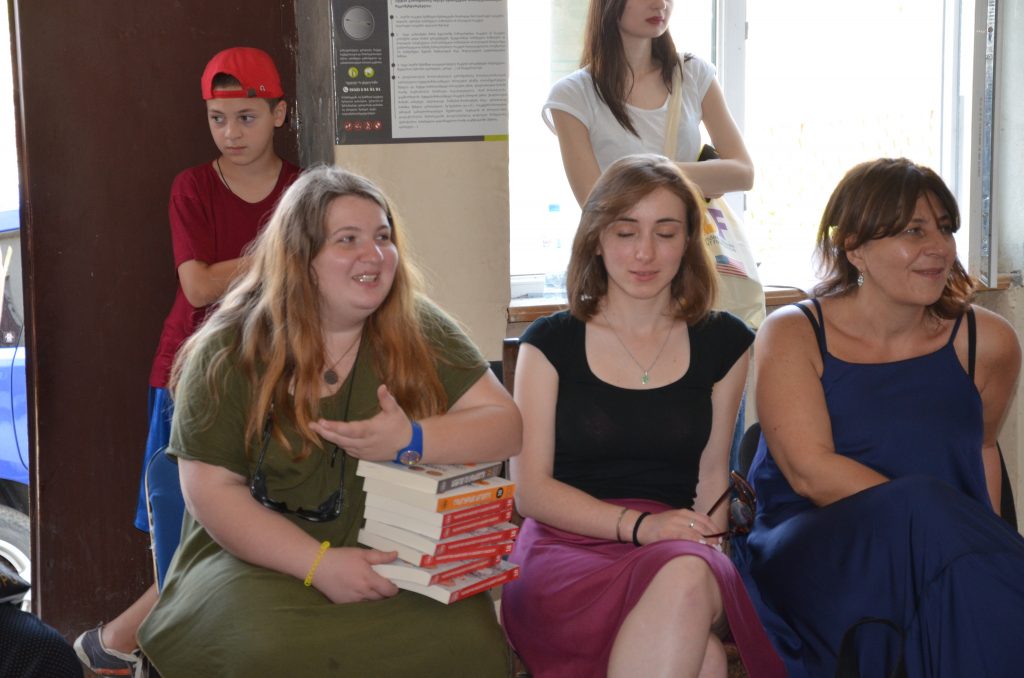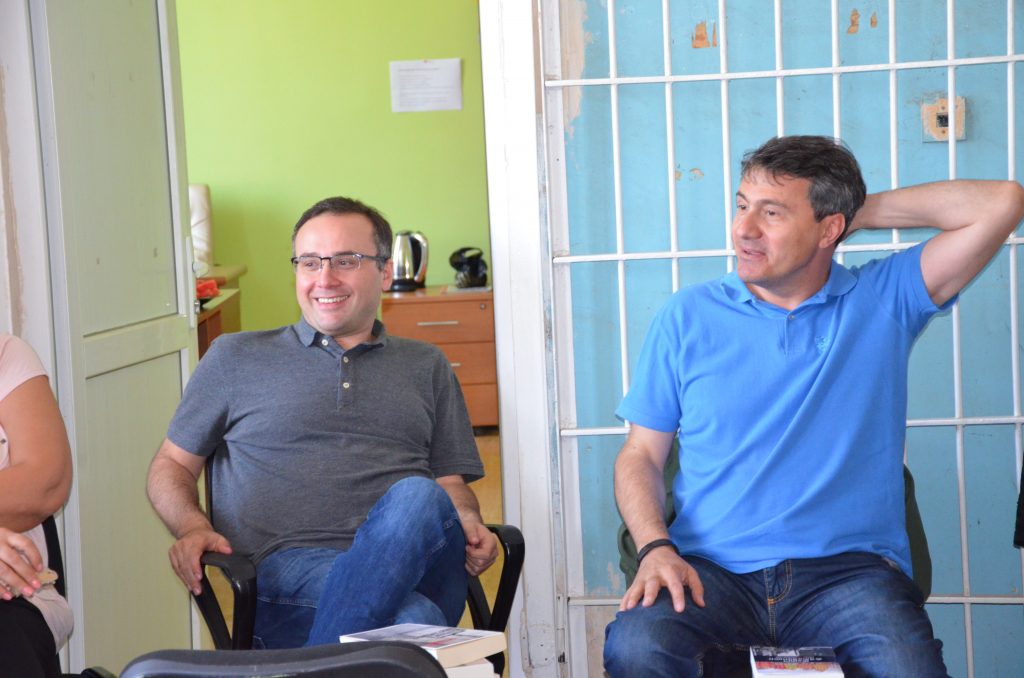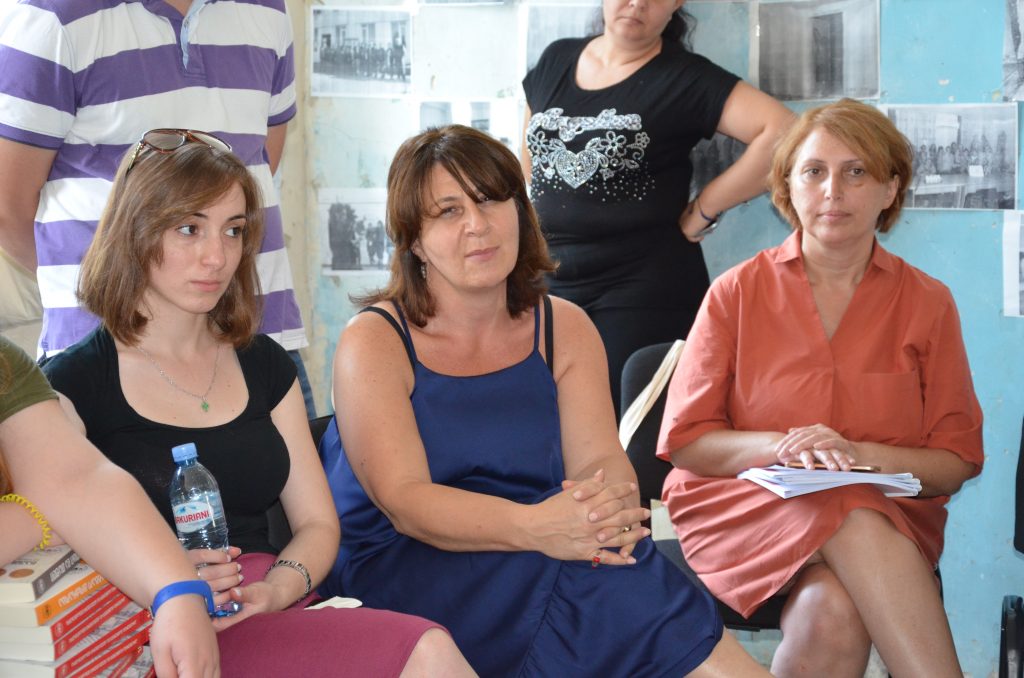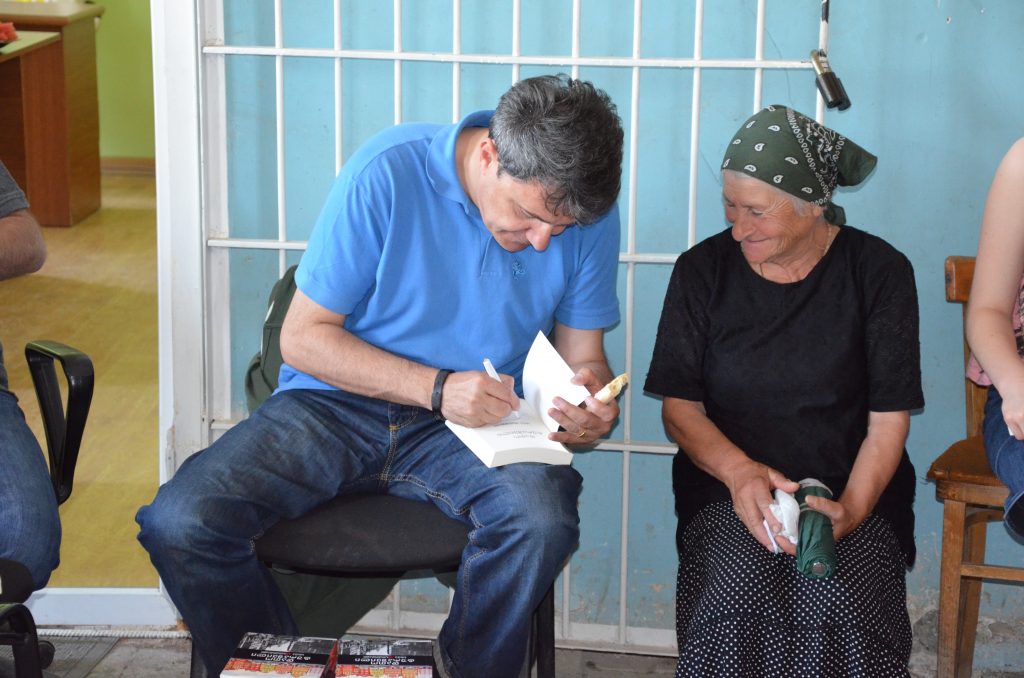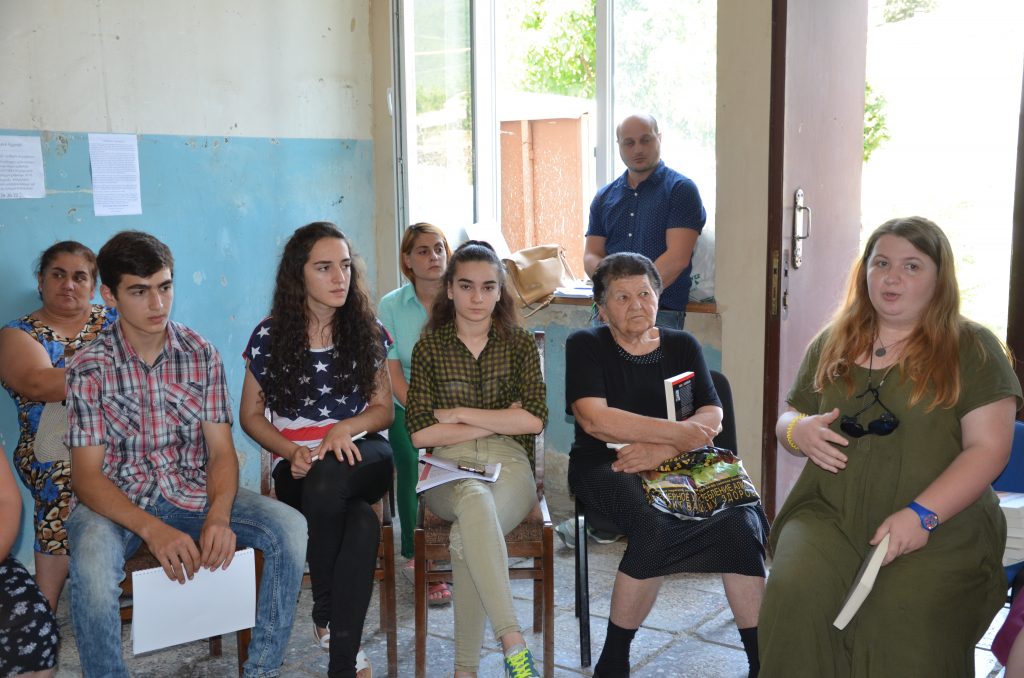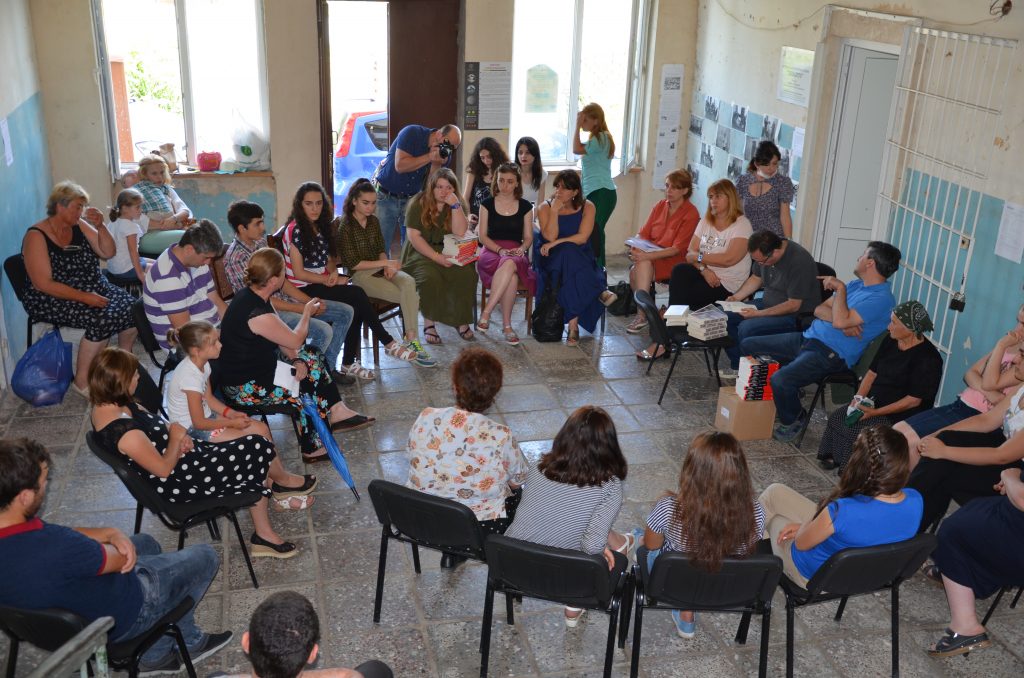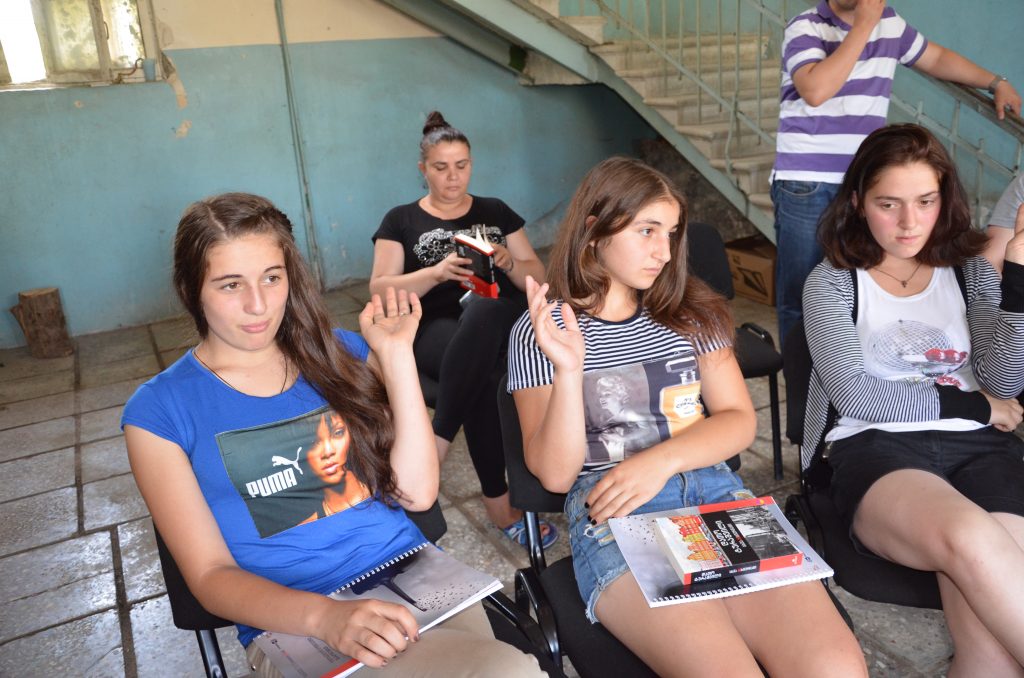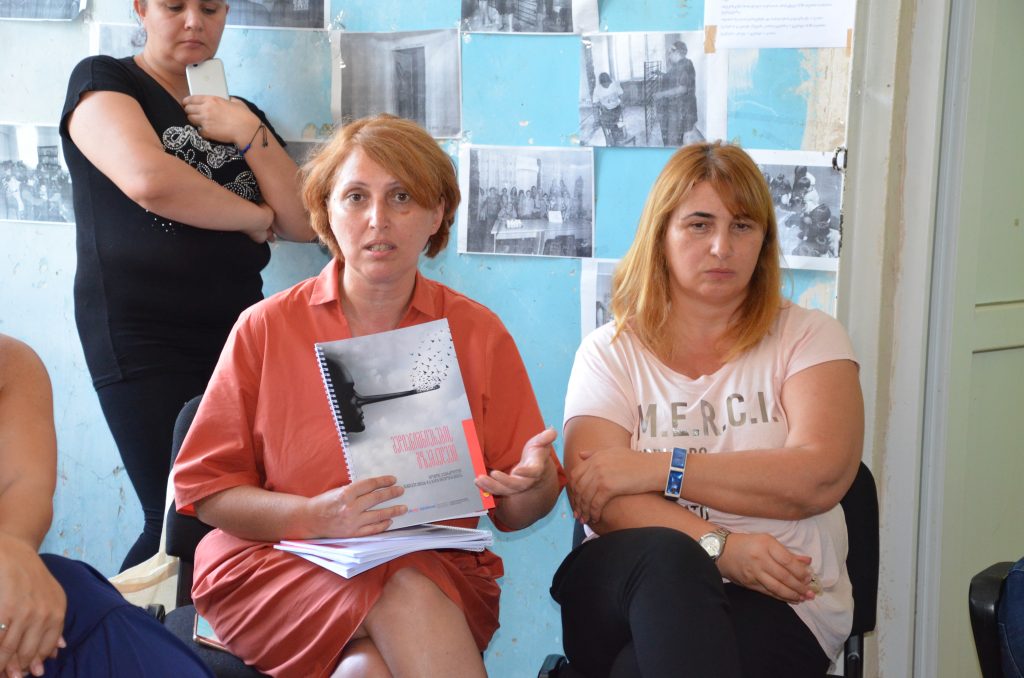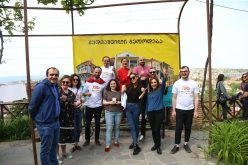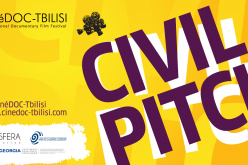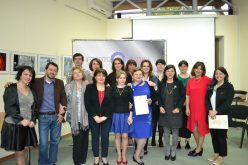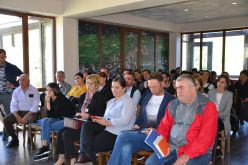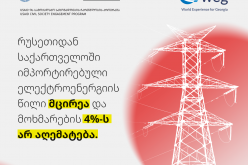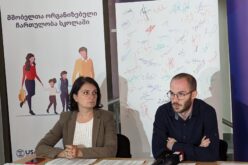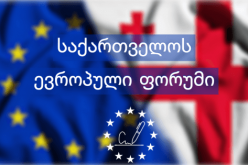Informal Talks about Georgia’s Soviet Past and European Future in the Villages of Kakheti
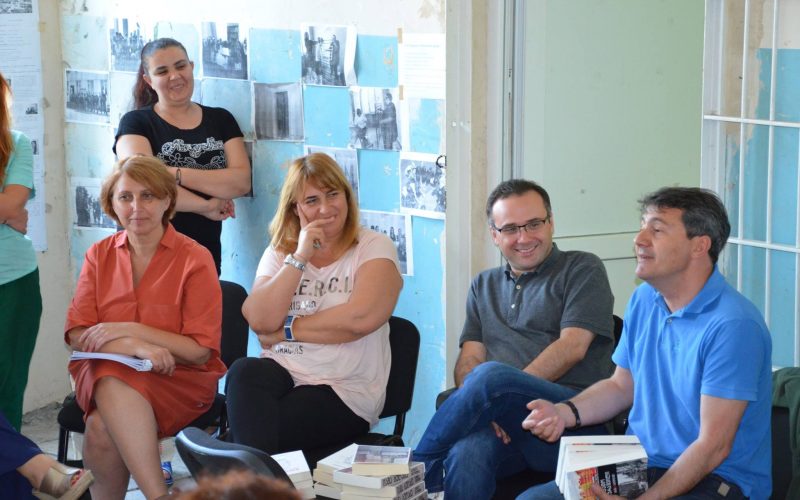
On 20th and 21st of July, EWMI ACCESS, along with prominent Georgian writers and CSO Leaders working on EU-Integration issues, organized an information tour in the villages of Eniseli and Velistsikhe in the Kakheti region to meet local residents to discuss Georgia’s Soviet past and European future – specifically the economic, political and cultural benefits that our country is getting from the European integration process. Discussions also covered the widespread anti-western disinformation campaign rolled out in Georgia, the sources disseminating this disinformation, and methods for detecting fake news.
The meetings started with the presentations of books by Lasha Bughadze and David Turashvili that were followed by lively discussions between the authors and the villagers concerning Georgia’s past and future. The writers brought concrete historic examples to highlight the scars left by the Soviet regime, the negative impact it had on the formation of the Georgian statehood and civic consciousness, and the ways it still affects us. The speakers elaborated on the path of development that European countries undertook in order to recognize and respect human dignity and rights, as well as the sovereignty and cultural identity of each nation. Meeting participants discussed at length how Europe unifies various countries with different cultures and traditions while uniting based on shared values of liberty, rule of law and human rights. The speakers managed to quell skepticism of some of the local residents regarding the role of Europe as a guardian of Georgian sovereignty and culture. Through very engaging and inspiring speeches, Lasha Bughadze and David Turashvili helped the audiences to re-evaluate Georgia’s Soviet past and set new priorities for the country’s development.
Representatives of the NGO “Radarami” gave a presentation on the Georgian translation of the book “Nothing is True and Everything is Possible: The Surreal Heart of the New Russia” written by the Kiev-born British journalist Peter Pomerantsev, who worked for a Russian TV-Channel for a number of years. The book recounts how Russian propaganda works and how it influences the world today. Using specific examples, the author demonstrates how Russian TV channels first attract an audience and then use this medium to disseminate fake news and propagandist narratives. Tamar Kinsturashvili from the “Media Development Foundation” also elaborated on this issue and provided the audience with specific examples of fake news and anti-western disinformation by certain Georgian media outlets. She also distributed the Media Literacy Guidebook (published by MDF) that elaborates on the methods and techniques of double-checking the information and detecting fake news (including photo and video manipulations).
Representative of the “In-depth Reporting and Advocacy Centre”, Lika Basilaia spoke with villagers about the practical benefits of DCFTA for Georgian farmers, provided solid arguments in support of the EU Market in comparison to other neighboring markets, and demonstrated examples of successful Georgian entrepreneurs who have already entered the EU market. She also provided specific advice and consultations to citizens interested in EU regulations and relevant procedures.
The meetings were of great public interest. Participants expressed willingness to learn more about the issues raised at the meetings and requested to hold such meetings more frequently. Invited speakers gave residents the details of existing online resources where they can find other relevant information, as well as distributed books and other pertinent materials.
